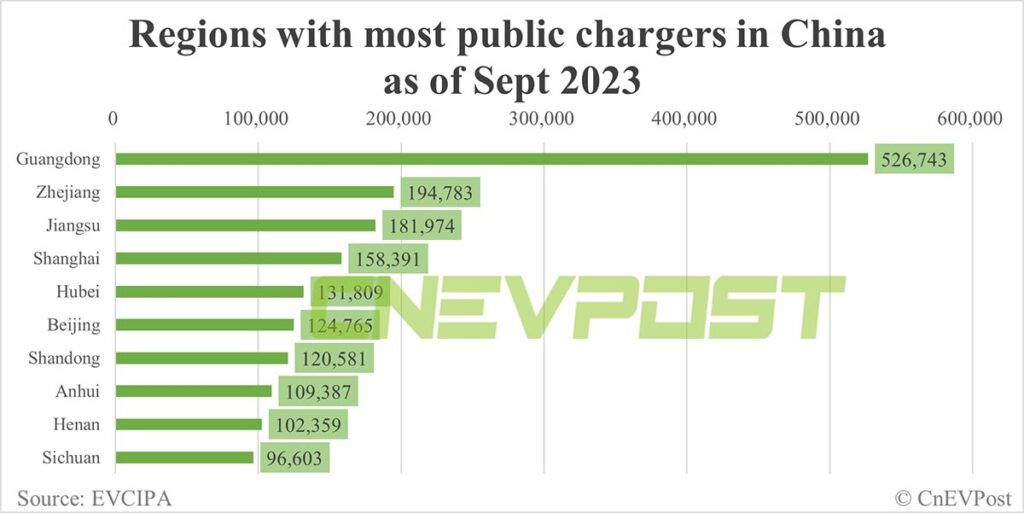Anhui aims to have more than 500,000 public charging piles and 500 battery swap stations by 2027, which will meet the charging needs of 1 million NEVs.

Anhui province in eastern China aims to increase the number of public charging piles in the province by nearly 400 percent over the next four years to meet charging demand at a time when new energy vehicle (NEV) sales are growing rapidly.
By 2027, Anhui will have more than 500,000 public charging piles and 500 battery swap stations, and they will meet the charging needs of 1 million NEVs, according to an October 13 announcement by the Anhui Development and Reform Commission.
By then, NEV owners will be able to find charging piles within less than 2 kilometers in major urban areas in Anhui, and key areas in counties and townships will also be covered by the charging network, the announcement said.
All fixed parking spaces in new residential areas in Anhui will be fitted with charging facilities or reserved for charging facility installation, and at least 35 percent of new public buildings in urban areas will have charging facilities installed or reserved for charging facility installation, according to the announcement.
As of the end of September, Anhui had 109,387 public charging piles, the 8th largest in China, according to data released earlier this month by the China Electric Vehicle Charging Infrastructure Promotion Alliance (EVCIPA).
To have 500,000 charging piles by 2027 means Anhui will add about 390,000 charging piles, or 360 percent, over the next four years.
At the end of September, the number of battery swap stations in Anhui was 123, according to the EVCIPA. The planned figure of 500 implies an increase of about 310 percent.

China’s public charging piles stood at 2,462,000 units at the end of September, with a monthly average of about 69,000 units added since October 2022, according to the EVCIPA.
The 10 regions with the highest number of public charging piles — Guangdong, Zhejiang, Jiangsu, Shanghai, Hubei, Beijing, Shandong, Anhui, Henan and Sichuan — contributed 71 percent of the total number.
Anhui plans legislation to further promote local NEV industry

